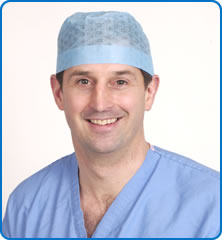Doctors
Consultant Stroke Physicians look after each ward. Each Consultant has a weekly ward round. Both wards have a team of ward doctors including a Medical Registrar, Senior House Officer and House Officers. If you wish to meet with a Consultant, please ask the ward receptionist or nurse to make an appointment.
Nursing Staff
Nursing staff work in teams. A qualified nurse is responsible for coordinating patients’ daily care. Health Care Assistants support the nurses and provide personal care. Nurses & Health Care Assistants work in shifts. There is always a Nurse in Charge on each ward. He/she wears a yellow badge.
Administration Assistant
The administration assistant on HASU/ASU may contact your family to arrange progress meetings. She can be contacted on HASU/ASU.
Advanced Nurse Practitioners for Stroke (ANP) / Stroke Nurse Practitioners(SNP) They are nurses who have undergone further study and training to be able to see, diagnose and treat patients independently. They assess acute stroke patients presenting to the Emergency Department, facilitating early imaging, assessment, diagnosis and treatment and ensure a smooth patient journey from ED to the Acute stroke unit. They offer information, advice and support. Transfer of regional thrombectomy patients is also co-ordinated by them, ensuring that patients receive the necessary assessments, checks and investigations prior and post procedure in a time critical fashion. ANPs review patients presenting to TIA clinic. As well as clinical work they are also involved in audit, teaching programmes – including running in-house and regional Simulation workshops - and research.
Social Worker
The social worker works with the stroke team in planning your discharge. They will arrange to see you/your family if you are in need of support after hospital. This might be:
- Arranging packages of care to help people at home.
- Arranging care homes for people who are unable to manage in their own home.
- Support for families who are providing care.
- Making contact with other services, for example benefits advice, support groups, luncheon clubs, transport schemes.
- Applications for re-housing.
Occupational Therapy
Occupational Therapist identify any difficulties you may have with everyday tasks such as feeding yourself, getting washed and dressed or simple kitchen activities.
Problems in these areas may be due to:
- Muscle weakness
- Poor balance
- Memory changes
- Difficulty with concentration
- Altered understanding
The Occupational Therapist will work with you to improve your skills and confidence. This may include:
- Practice of a task
- Advice on new ways of doing things to increase your independence and safety
- Provision of equipment such as handrails, commode etc
- Looking at how you will manage in your own home and what help you will need if you are ready to be discharged
- Advice on returning to work or leisure activities
Physiotherapy
The aim of physiotherapy is to help you regain mobility and relearn the movements required to be able perform activities such as standing up, walking or reaching for objects following a stroke.
The Physiotherapists assess how the stroke has affected the way you move when you are first admitted to the unit.
During Physiotherapy sessions we work with you to improve:
- Moving around in bed
- Moving from bed to chair
- Sit to stand
- Balance
- Muscle strength
- How to improve arm movement
- Walking
The Physiotherapists and Occupational Therapists also assess positioning to ensure that you are comfortable when you are in bed or in a chair and that your affected arm is well supported.
Speech and Language Therapy
If you are having communication difficulties (talking, understanding, reading or writing), a Speech and Language Therapist will see you. They will assess the level of your problems and find ways for you and your family to make communication easier.
If you have swallowing difficulties, a Speech and Language Therapist will also see you. They will advise the stroke team how to make sure you swallow safely (i.e. ensure food and drink do not go down the wrong way into your windpipe and lungs). This may mean having a special consistency diet that is easier and safer for you.
If you cannot swallow safely at all, you will be unable to eat and drink. You will be ‘nil by mouth’ and may have a feeding tube passed via your nose directly to your stomach. This will be fully explained to you.
Dieticians
If you have a poor appetite or are unable to eat a normal diet due to swallowing difficulties, the dietician will see you. They will discuss with you the best way to keep you well nourished, which may include a special diets, supplements or feeding using a tube. Some medical conditions require special diets, recommended by the dietitian. Please ask to see a dietician if you have any dietary issues.
Psychology
Stroke can affect you emotionally as well as physically. It is normal to experience a variety of psychological responses as you adjust to the changes in your life. For example, mood, concentration and memory may be affected. The Psychologist can help you and your family to adjust to what has happened to you.
Pharmacy
A Pharmacist comes to the ward every weekday and will check the medications you are taking. You can ask them any questions you have.

 Preparation for your treatment
Preparation for your treatment


